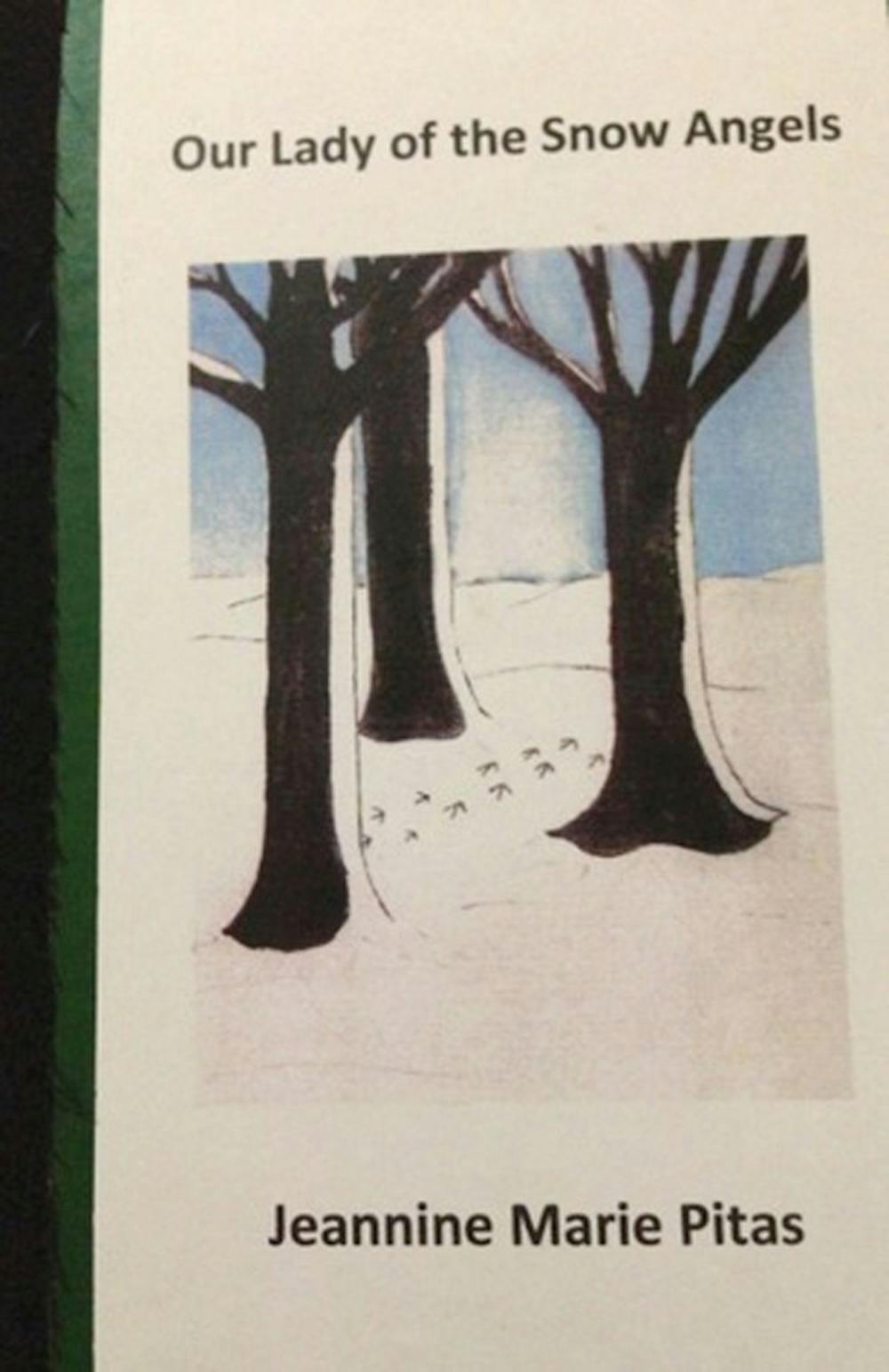In a small, cozy area of Talking Leaves Books, Jeannine Pitas' infectious smile complemented the thin hardcover book in her lap. A modest gathering of people sat around her in wooden chairs and tall rows of wooden bookshelves bordered the area.
Pitas opened the book and began lyrically reciting one of her poems as the air filled with her poetic voice.
"The leaves begin humming and the ground starts to sing," she read. "And until I find my way again, I am in paradise."
Pitas' poetry reading, which took place at Talking Leaves Books last Wednesday evening, was well received by those in attendance.
Pitas, a Buffalo native and current Ph.D. student at the University of Toronto, is becoming a formidable name in the Buffalo literary scene. Her poetry has been featured in various publications: Chrysalis, Carte Blanche, Fresh Yarn andThe Buffalo News, to name a few. She recently published her first chapbook entitled Our Lady of the Snow Angels last November.
Robert D. Pohl, editor of the Spotlight Poetry Feature of The Buffalo News, has known Pitas for some time and is an admirer of her poetry.
"[Pitas'] work reflects a strong commitment to a kind of liberal Catholic humanism," Pohl said. "It [also] shows a strong sense of language and poetic form."
Pitas' style is multifaceted. It takes secular philosophies, religious imagery and personal experiences and fuses them together seamlessly.
One of her most notable works encompassing this varied style is entitled "When We Were Human."
The poem begins by recollecting a forgotten and imaginative past: "When the hum of mosquitos was still the holiest prayer/when the veins of our hands were still roots, and flowers sprouted from them as we grew old."
Pitas then transitions to the present, a time of inertia: "Now that we know all movement is rotation/Now that we are as motionless as stars."
The poem ends with a bold defiance of this degeneration from past to present: "They tell us that we should be grateful, as we drift from now to now," Pitas writes.
"They tell us that we are still human/But I don't believe them."
The expressiveness of the piece is philosophical and striking. It's a strong contemplation of our lives and of the world that strikes a chord with our innermost sentiments.
"It's almost manifesto-like, with a strong sense of what is left in terms of the project of humanism," Pohl said.
Another one of Pitas' noteworthy works is a poem entitled "The Dolls."
The surreal poem is about four dolls on a fireplace mantel, each one a unique character. The dolls come to life at night and dance "like marbles, like snowflakes, like stars."
Dolls that belonged to Pitas' mother, Carol Pitas, inspired the poem.
"I didn't realize how much of an impression [the dolls] made on her," Carol said. "It makes me feel good that I could add something to her inspiration and writing."
In fact, Pitas' family and personal experiences have a large influence over her work.
"Pork Chops and Pierogi" is a poem that portrays the struggles and hardships of her mother. It describes Pitas' mother scrubbing a dirty floor on her knees and her father working long hours at a brewery.
"My childhood wasn't the greatest," Carol said. "I told [Pitas] about my past when she was very young; she really took it to heart. [Her poem] made me a stronger person and I think it helped Jeannine as well."
For Pitas, poetry has served many roles in her life. It's been a coping mechanism for some of life's struggles and has also been an extremely uplifting and vital part of her life.
"I've realized that almost everything in my life I can lose," Pitas said. "I can lose friends. I can lose people that I love. I can lose relationships ... But [poetry] is something that in my experience has always been there for me ever since I was 12."
Pitas sees it as an enduring part of her life, too.
"[Poetry] is something that I can always rely on," she said. "[It's] something that I always come back to ... something that comes back to me."
Our Lady of the Snow Angels is on sale now.
Email: arts@ubspectrum.com





